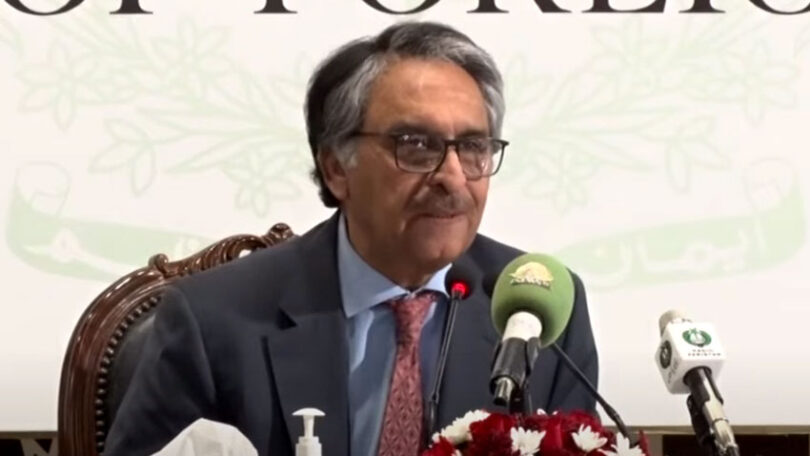Pakistan has categorically rejected the biased judgment announced by the Supreme Court of India on the special status of Indian Illegally Occupied Jammu and Kashmir (IIOJK). Addressing a presser in Islamabad on Monday, Caretaker Foreign Minister Jalil Abbas Jilani declared that Illegally Occupied Jammu and Kashmir is an internationally recognized disputed territory, so India has no right to determine the status of the disputed territory of the forcefully occupied region through domestic actions and legislation. According to him, the judicial endorsement of the Modi regime’s unilateral and unlawful actions of August 5, 2019, is a travesty of justice, in denial of historical facts, the UN charter, and the global law.
Historically, the Jammu and Kashmir dispute is not a domestic issue of India, rather it is a globally recognized territorial dispute between Pakistan and Bharat since 1947, when both nations got freedom from British rule. There are multiple resolutions of the United Nations Security Council (UNSC), that categorically endorsed the disputed status of Jammu and Kashmir and ordered warring countries to create a conducive environment for a subsequent free and fair plebiscite in the valley through which the people of Jammu and Kashmir could exercise their right to self-determination under the UN supervision. The Indian leaders accepted the UN resolution at that time and assigned special status to Jammu and Kashmir and a ban was imposed on the sale/purchase of land in disputed territory to avoid demographic change that might affect the outcomes of onward plebiscite in the valley. Historically, those arrangements remained in place throughout the past more than seven decades until the Modi-led BJP regime scrapped Article-370 and Section 35 of the constitution of India on August 5, 2019, to pave the path for complete assimilation of the globally disputed region into mainland India.
Historically, the people of Indian Occupied Jammu and Kashmir (IIOJK) rejected that politically motivated move of the Modi regime and staged statewide protest demonstrations against the Indian government which in turn imposed a curfew and shut down all communication channels including the internet to unlimited time in a bid to suppress Kashmiri voices against its illegal occupation and unlawful actions. Meanwhile, human rights organizations and civil society reached the Supreme Court of India to get a reversal of the unlawful actions of Indian rulers. Unfortunately, the recent judgment of the Supreme Court of India is another manifestation of the pliant judiciary under India’s ruling dispensation.
In fact, the verdict of India’s top court is not based on the principles of justice and non-partisanship, rather it is in contradiction to the global law, the Universal Declaration of Human Rights (UDHR) as well as global humanitarian law. That verdict is politically motivated and aims to support the political interests of the Indian government instead of protecting the fundamental rights of Indian minorities. Such verdicts of kangaroo courts neither hold any importance nor do they impress the global community; rather such attempts would further expose the nefarious designs of the Modi government and chauvinist Indian adjudicators at the global level. This judgment cannot distract the international community’s attention from the gross and systematic human rights violations being perpetrated by the Indian occupying forces in the IIOJK.
Previously, the PTI government displayed utmost slackness at the time of the annulment of Article-370 and Section 35 by the Indian government dating back in August 2019. Although it was a domestic matter of India, yet it was linked to a global territorial dispute between Pakistan and India and was seriously affecting over 14 million Kashmiris living on the other side of the Line of Control (LoC). Now, the Indian Kagroo court resolutely backed the Indian government’s illegal action in betrayal of global humanitarian norms and regulations and India is rapidly moving to rape up the Kashmir dispute in this guise. The government of Pakistan must take up this issue at the International Court of Justice (ICJ), the UNGA as well as at the UN Security Council (UNSC). Pakistan must press the UNSC for its bias, selective approach, and slackness in the implementation of its resolution, so the Kashmir dispute takes rebirth and moves toward its ultimate solution in accordance with the aspirations of the Kashmiri people.







